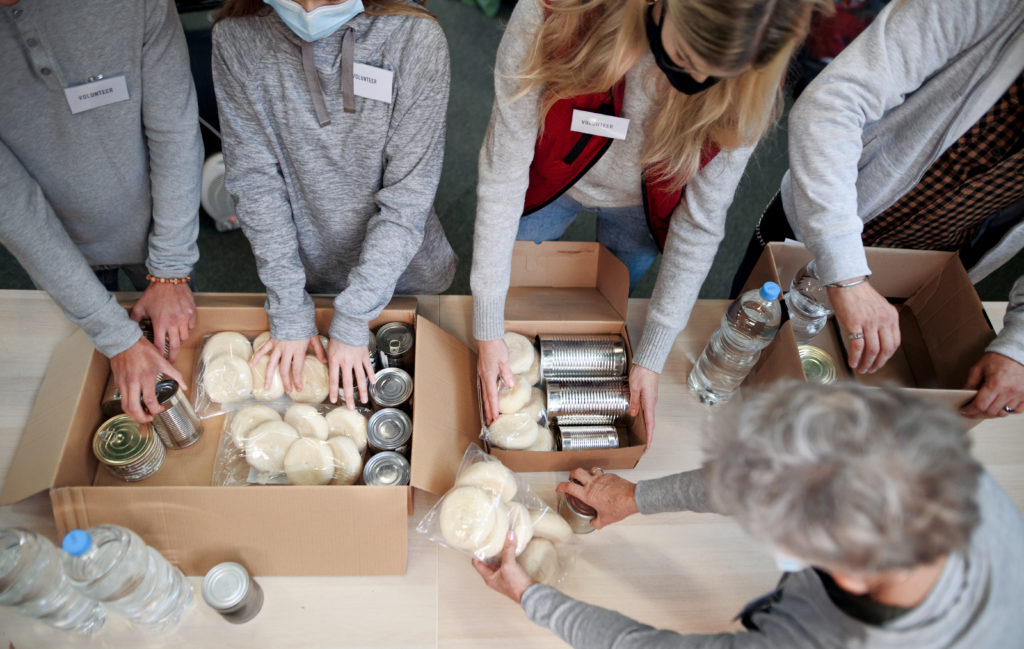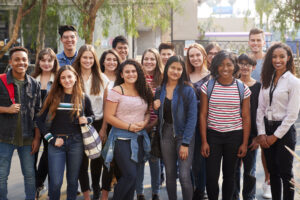BS/MD programs are among the most competitive higher educational opportunities in the country, and we’ve covered their admissions before. The difficulty of admissions has caused frequent stress for students, who wonder what a successful applicant to one of these programs looks like.
Today, we’ll pull back some of that curtain. In this article, we’ll go over the resume of a successful BS/MD applicant, look at what this former Ivy Scholars student did, and why their accomplishments made them an appealing candidate to BS/MD admissions officers. We’ll also include some advice for what activities you should pursue in highschool if your dream is to attend a BS/MD program. Let’s get started!
The Basics
We’ve covered how to write resumes before, and this resume follows the same general format. In order to protect the student’s privacy, we will be paraphrasing some of the entries, and will not post the resume in its entirety.
The resume begins with the student’s name, high school, location, and email address. It then proceeds to cover education. The student’s GPA is 101.42/100, and their class rank is 12 (out of ~575). While this GPA is clearly weighted, it still demonstrates the student’s remarkable aptitude for academics.
Finally, the student includes a section on relevant courses they have taken. This is a sampling of advanced math and science classes, all honors or AP. You can include this on your resume, but since these programs will also have your transcript, it is less necessary to write this out a second time.
The rest of the resume covers what the student has accomplished in their extracurriculars. We’ll be going over this in sections, and breaking down the importance of each when applying to medical programs.
The end of the resume covers skills and languages. You should list all languages you are proficient or fluent in, and skill level. You should also list hard or soft skills, including any programming languages you know, specialized programs or pieces of equipment you are trained to use, or certifications you have.
Leadership & Extracurricular Activities
This category is something of a catch-all, used to contain the activities which don’t quite fit in elsewhere on the resume. This does not mean the activities are unimpressive, but merely that they don’t all fit neatly into one of the categories BS/MD programs desire. Leadership is one of these categories, but is also the one best suited to being lumped in with the rest, which brings us to the activities on the resume.
The student lists the following under this section of the resume:
- Eagle Scout
- President Science Fair Club
- Superviser, Science Tutoring
- Congressional Advisory Council, Special Ambassador
- School District Student Leadership
All colleges want to see leadership in their students, but it is especially important for BS/MD students. Leadership is seen as a key way of measuring maturity in students, and in seeing how responsible you are. This is important for BS/MD programs due to the scale of commitment; when you are signing up for a seven or eight year long program, they want to be sure you will follow through.
In your own activities, you should look for opportunities to display leadership. This does not mean you need to be in charge of every club you are a member of, but you should look for ways you can take on extra responsibilities, and deepen your involvement in your activities. You want to show off your maturity and ability to handle the pressures that come from leadership.
Community Service
This category contains the student’s volunteer experiences. There are enough of these to warrant their own category, which is common for BS/MD students. While not all of them are directly related to medicine, they all serve to demonstrate the student’s commitment to their community, and to helping others.
The student lists the following under this section of the resume:
- Camp Counselor for a summer camp working with special needs children
- Medical Rehab
- Hospital Volunteering
- Elementary School Science Club Advisor
Volunteering looks good for all students (if done thoughtfully), but is of special importance to BS/MD applicants. One of the core traits all medical programs look for is a willingness to serve others, since medicine as a profession is dedicated to helping people at its core. Thus students who desire to study medicine are expected to already exemplify this trait.
In your own activities, you should look for volunteering opportunities. While it can be beneficial for these to be related to science or medicine, they do not have to be. As in the example above, however, many organizations in the healthcare field have room for volunteers, and are willing to work with high school students.

Achievements and Honors
The purpose of this section is to show off official recognition that the student received, from all sources. On the resume, this is split into sections, as there are many of these, and the student wants to highlight some for special consideration. We recommend doing this if some of your achievements are especially notable.
The student lists the following under this section of the resume:
- National Science Fair Finalist
- Top 10 finish in a world-wide science fair
- Top 8 finish at state science fair
- 1st place finish city-wide science fair
- 3x Presidential Volunteer’s Gold Service Award
Special Recognition (under a subheading)
- $1,500 merit scholarship to attend a science-based research summer program
- Guest presenter at a technology benefit banquet
Additional awards
- $300 scholarship award from a community organization
- Certificate of Congressional Recognition
- 1st place in Translational Medical Science category for state-wide science fair
- American Invitational Mathematics Examination acceptance
There is a lot here, most of which point to a record of participation in a high level at science fairs and competitions. These point to recognition of the student’s achievements from external sources, and serve as support for the thesis that the student is academically prepared for the rigors of a BS/MD program.
On your own resume, you should list any awards you have received that recognize your accomplishments. These parallel the honors section of the Common App, but many students have more than five awards they would like to discuss. While you do not need to separate it exactly as this student did, we do recommend separating out your most noteworthy accomplishments under a subheading.
We recommend participation in competitions for students who aspire for BS/MD programs, as they are a great way to get hands-on experience with concepts in science you may otherwise only encounter theoretically. These are not the only possible sources of awards and recognition, but are well established. Applying for scholarships (even small ones) is a good way to gain recognition as well.
Publications
The student lists the titles of four articles they are listed as an author on, all of which relate to biology or medicine. Writing (or helping to write) scientific articles is not necessary for all high school students, but looks very good for BS/MD students. Scientific research is one of the pillars of medicine, and the capstone of every research project is the publication of your results.
You do not have to publish to gain research experience, but it is a nice feather in your cap, especially as a high school student. We recommend listing the journal or site which published your articles as well. BS/MD admissions committees are comprised of people in the field, and they will be able to evaluate the stature of your publisher, and you can gain additional points from that as well.
For more advice on this specifically, see our articles on doing research in high school, and writing research papers.
Research/Shadowing/Internship Experience
This section is lumped together because these are all things BS/MD programs look for. They want to see that you have some practical experience and involvement with both science and medicine. They specifically look for students with hands-on research experience and shadowing experience. These show that the student has already invested time into pursuing medicine, and isn’t likely to change their mind at a later date.
The student lists the following under this section of the resume:
- Oncologic-Pathology Lab, Harvard Medical Center, research internship
- Yung Lab, MD Anderson Cancer Center, research internship
- Anesthesiology Dept. shadowing
- De Groot Lab, MD Anderson Cancer Center, research internship
- Emergency Room shadowing
- Neuro-Oncology, Dana-Farber Cancer Institute, shadowing
This is an even mix of shadowing and research experience, and demonstrates the student’s deep and broad experience with both research and medicine. Their shadowing took them across multiple departments, while their research in various labs demonstrates a great deal of practical experience as well.
For your own resume, you should attempt to find both research internships and shadowing opportunities in a variety of medical fields. You are still too early to specialize, and you should look for a breadth of experiences if possible. This has the added benefit of giving you a leg up when deciding where you might want to specialize, or which research topics you may wish to pursue in college.
Online/Out of School Courses
This is a list of coursework completed by the student outside of their normal schoolwork, and so not included on their transcript. This does not include dual enrollment courses completed through their high school, but summer and online courses in relevant fields.
These are not expected for BS/MD admissions, but can be a good way to round out your academic profile. If your high school does not offer calculus, then you should definitely take it some other way, as calculus is the foundation for most of the science classes you will have to take through undergrad.
Generally, however, taking outside courses helps you explore academic topics which may not be offered by your high school. They can sometimes grant college credit, though this varies. Most colleges also cap the amount of credit you can enter with, though this varies greatly by college and even by program. We recommend taking and listing these courses if there are advanced concepts you wish to explore rigorously, but are unable to do so at your high school.
Final Thoughts
BS/MD admissions is holistic, meaning that every aspect of your application is evaluated, and you are judged as a whole, more than the sum of your parts. That said, each component portion of your application needs to be at a high standard, able to compete against the brightest students in the country.
We hope that this article gave you insight into what a resume of a successful BS/MD student looks like. For advice on tackling the BS/MD essays, see our article on the topic. If you wish to discuss your own candidacy, or hear how we can help you apply to these difficult programs, schedule a free consultation with us today. We have helped many students apply to BS/MD programs or as pre meds, and are always happy to help you take the next step towards becoming a doctor.








